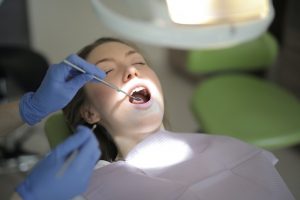
Expert Insights from All About Dentistry
With an estimated 50,000 new cases of oral cancer diagnosed annually in the United States, awareness and early detection are key. At All About Dentistry, we’re committed to educating our patients about oral cancer, its symptoms, and prevention strategies. Early detection significantly improves treatment outcomes.
Understanding Oral Cancer
Oral cancer, encompassing cancers of the oral cavity and oropharynx, can develop in various areas including the lips, mouth, throat, and esophagus. Risk factors for oral cancer include tobacco use, alcohol consumption, sun exposure, and human papillomavirus (HPV) infection. Age, sex, and genetics also play a role.
Recognizing the Signs of Oral Cancer
Identifying oral cancer early is crucial. Watch for these symptoms:
- Changes in voice quality.
- Persistent ear pain.
- Chronic sore throat.
- Difficulty in chewing, talking, swallowing, or moving the tongue.
- Sensation of something caught in the throat.
- Unusual patches inside the mouth.
- Numbness in the oral cavity.
- Mouth or lip pain and tenderness.
- Rough, thick, or crusty soft tissue.
- Non-healing sores.
- Swelling in the mouth, throat, jaw, or lips.
- Unusual lumps.
If these symptoms persist for more than two weeks, consult your dentist.
How Your Dentist Can Help
Self-examination of the mouth and throat can be challenging, but dental professionals are skilled in detecting early signs of oral cancer. Routine dental appointments include comprehensive oral cancer screenings. These painless examinations involve inspecting the entire oral cavity and feeling the jaw and neck for abnormalities. Dental X-rays may also be used.
Treatment and Management
If signs of oral cancer are detected, further tests such as biopsies may be conducted. Treatment options, dependent on cancer’s stage and location, include surgery, radiation, and chemotherapy.
Proactive Steps to Lower Your Risk
While oral cancer can’t be entirely prevented, certain practices can reduce your risk:
- Attend regular dental visits for cleanings and oral cancer screenings.
- Quit tobacco use and avoid starting.
- Maintain proper oral hygiene: brush twice daily and floss regularly.
- Eat a balanced diet rich in fruits and vegetables.
- Limit alcohol consumption or abstain altogether.
- Use sunscreen lip balm and wear wide-brimmed hats for sun protection.
- Get vaccinated against HPV.
At All About Dentistry, we’re dedicated to maintaining your oral health and addressing concerns, including oral cancer. By following these tips, you can lower your risk. For more information or to schedule an oral cancer screening, contact us today.
